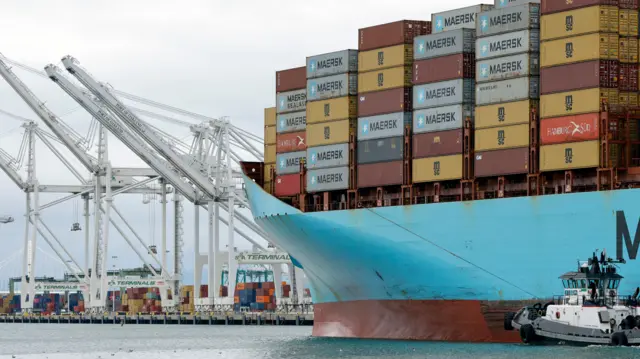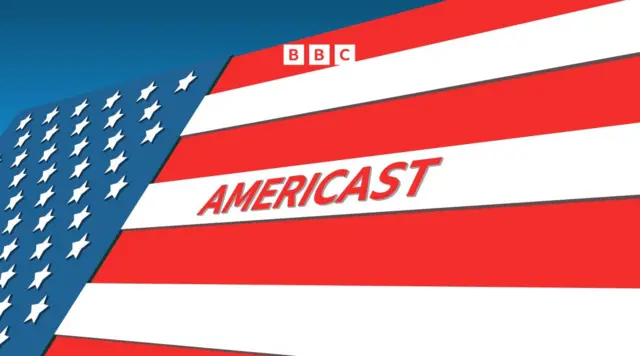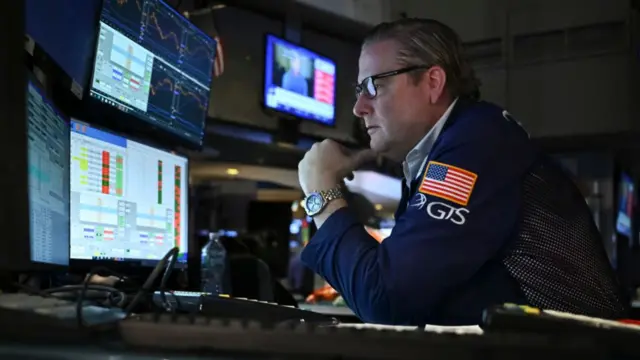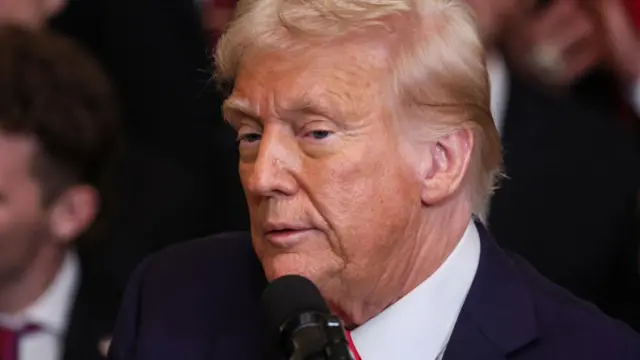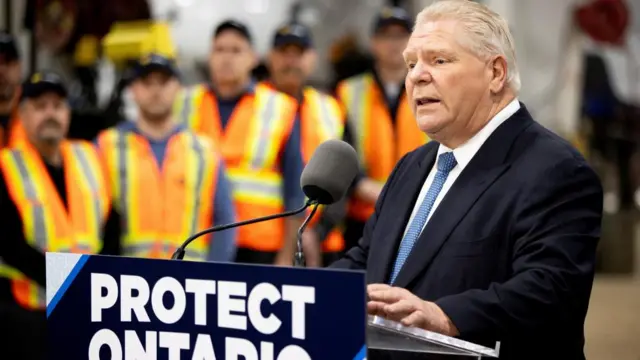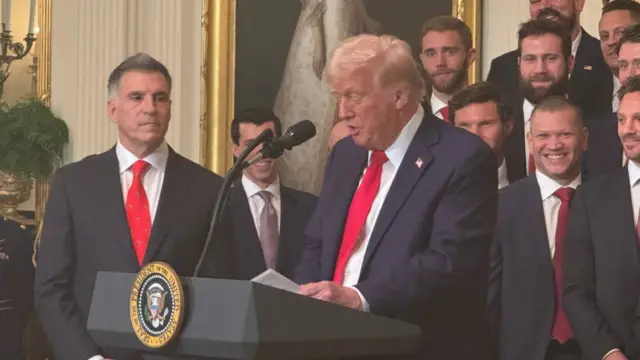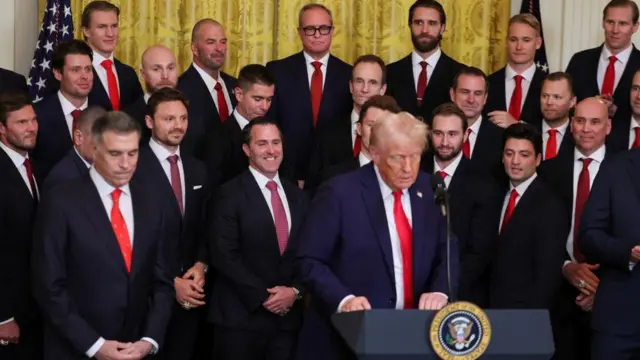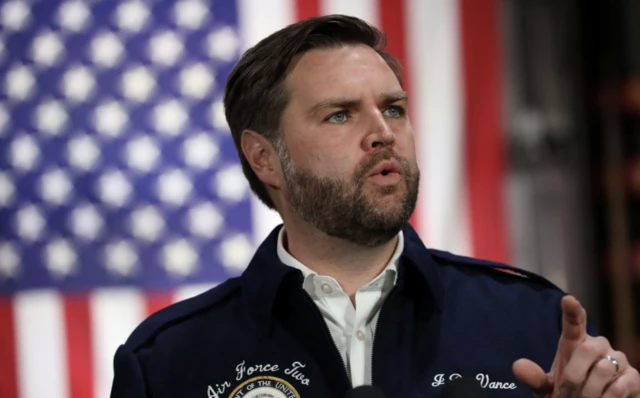What happened today?published at 02:01 GMT 4 February
It's been a big day in US politics. Let's take a quick look at some of the major developments in this story:
- US President Donald Trump's proposed 25% tariffs on Canada and Mexico were paused on Monday, less than 24 hours before they were set to take effect
- The pause - which is scheduled to last for 30 days - came after multiple calls between Trump and Canada's Justin Trudeau and Mexico's Claudia Sheinbaum
- Both Mexico and Canada have agreed to ramp up border security to curb the flow of illegal immigration and drugs - priorities for Trump's White House
- Canada will appoint a "fentanyl tsar", and Mexico will send 10,000 troops to the border as part of the deal with Trump
- A 10% tariff increase on imports from China is still schedules to take effect at 00:01 EST (05:01 GMT)


